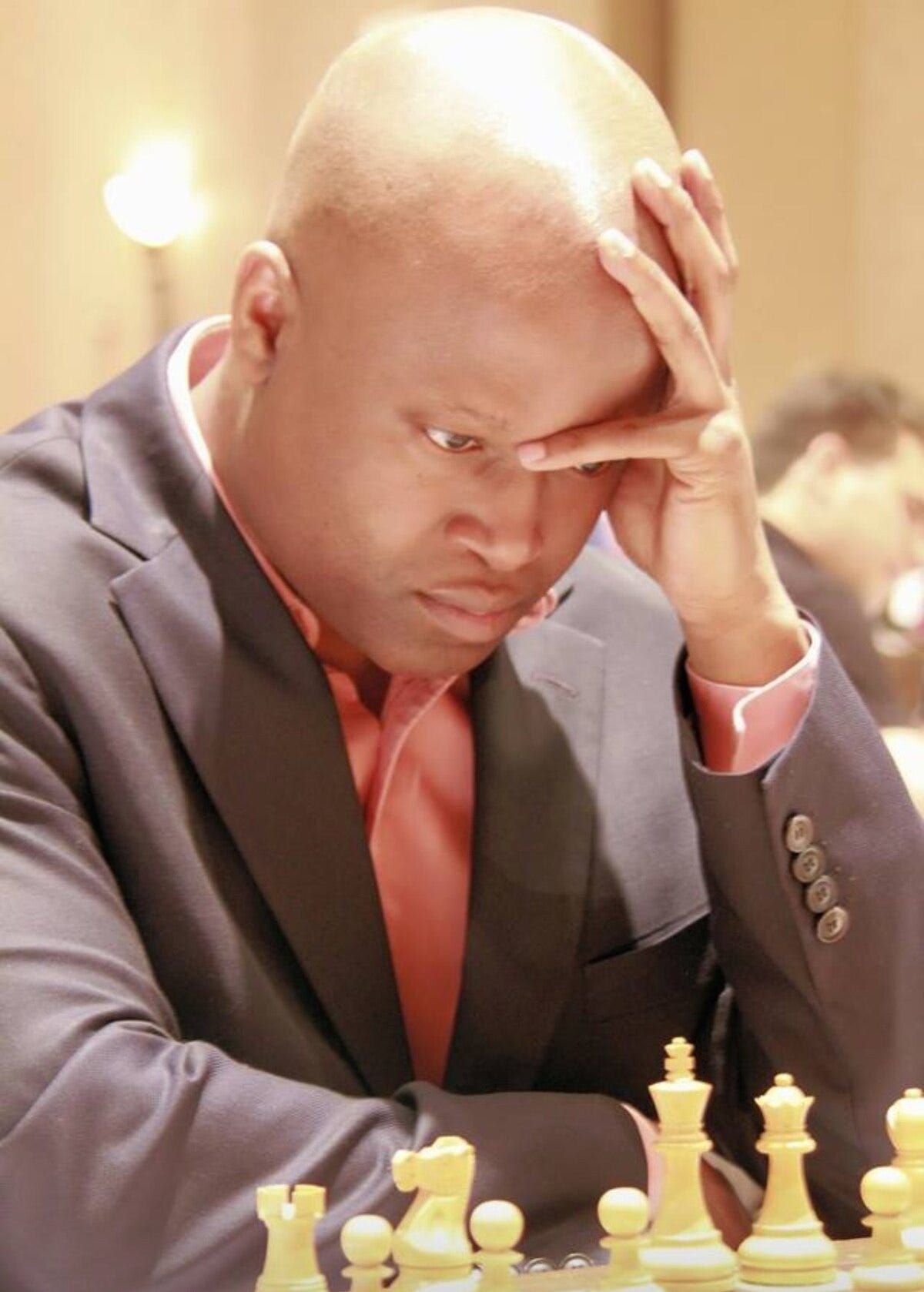From Jamaica to Grandmaster
Maurice Ashley
Maurice Ashley: A King Forged in Black and White
Maurice Ashley's story is etched not just on the 64 squares of a chessboard, but within the annals of history itself. Born in Jamaica in 1966, his journey to becoming the first African-American Grandmaster wasn't just about mastering the game, but about demolishing walls and paving a path for generations to come. This is a tapestry woven with the threads of relentless passion, unwavering dedication, and the indomitable spirit of a pioneer.
From Island Shores to Concrete Jungles:
Ashley's introduction to chess came amidst the vibrant hum of St. Andrew, Jamaica. At a young age, his brother unveiled the intricate dance of kings and pawns, igniting a spark that would soon set the world ablaze. At 12, fate's hand dealt him a new board – the gritty streets of Brownsville, Brooklyn. Yet, the concrete jungle couldn't confine his dreams. Parks and local clubs became his training grounds, each game a stepping stone on his climb to chess royalty.
Despite lacking a high school chess team, Ashley's ambition couldn't be stifled. He devoured books, dissected master games, and challenged anyone who dared cross his path. The sacrifice of long hours was fueled by a singular vision – to conquer the 64 squares and stand shoulder-to-shoulder with the giants of the game.
Climbing the Ladder of Accolades:
In 1986, at the tender age of 20, Ashley's relentless pursuit bore its first fruit – the National Master title. Seven years later, the International Master crown adorned his head, each victory a testament to his unwavering spirit. But the ultimate prize, the title of Grandmaster, remained a tantalizing mirage, shimmering just out of reach.
The chess world of the late 20th century was far from a welcoming space for aspiring players of color. Racism and prejudice cast long shadows, creating a treacherous path for Ashley. Yet, he refused to be defined by prejudice. His resilience shone brighter than any obstacle, his every triumph a silent rebellion against the established order.
A Crown Forged in the Crucible of Adversity:
Finally, in 1999, the walls came tumbling down. Ashley's relentless spirit culminated in the unthinkable – he became the first African-American Grandmaster in chess history. The news echoed around the globe, not just as a personal triumph, but as a watershed moment for diversity and inclusion in the game. It was a victory that transcended the 64 squares, a symbolic chess piece checkmating centuries of prejudice.
Beyond the Board: A Legacy of Inspiration:
Ashley's impact stretches far beyond the competitive arena. He is a champion for chess education, particularly among underprivileged communities. His Harlem Chess Center stands as a beacon of hope, a haven where children of color can learn, strategize, and dream big.
His eloquent commentary brings the intricacies of the game to life for audiences worldwide. From historic clashes like Kasparov versus Deep Blue to thrilling modern tournaments, Ashley's insights captivate viewers with their infectious enthusiasm and profound understanding.
Words that Move Mountains:
Ashley is not just a master of the board, but a master of language. His books, "Chess for Success: Lessons from the Game of Champions" and "Maurice Ashley Teaches Chess," are testaments to his passion for sharing the transformative power of the game. His motivational talks and workshops inspire young minds to embrace challenges, believe in themselves, and strive for excellence.
A King for All Seasons:
Maurice Ashley's story transcends the confines of chess. It's a narrative of breaking barriers, defying expectations, and leaving an indelible mark on the world. He is a living testament to the power of human potential, a beacon of hope for aspiring players of color, and a constant reminder that the greatest victories are often forged in the face of adversity.
Milestones that Catapulted a Legend:
1986: Earning the National Master title at just 20, marking the beginning of his meteoric rise.
1993: Achieving the International Master title, solidifying his status as a rising star.
1997: Coaching the Raging Rooks of Harlem Junior High School #43 to National Junior High School Championship victory, showcasing his dedication to youth development.
1999: Becoming the first African-American Grandmaster, shattering racial barriers and forever changing the landscape of chess.
2005: Publishing "Chess for Success," sharing his insights and inspiring a new generation of players.
2016: Induction into the US Chess Hall of Fame, a prestigious recognition of his contributions to the game.
2019: Launching the "Chess & Checkmates Education Fund," providing financial support for underprivileged


